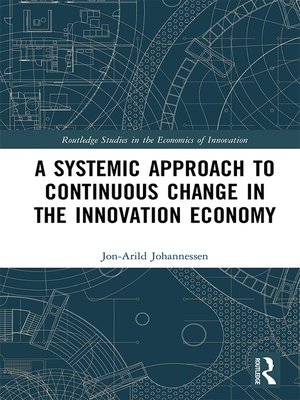A Systemic Approach to Continuous Change in the Innovation Economy
ebook ∣ Routledge Studies in the Economics of Innovation
By Jon-Arild Johannessen

Sign up to save your library
With an OverDrive account, you can save your favorite libraries for at-a-glance information about availability. Find out more about OverDrive accounts.
Find this title in Libby, the library reading app by OverDrive.



Search for a digital library with this title
Title found at these libraries:
| Library Name | Distance |
|---|---|
| Loading... |
Unpredictable and unforeseen, or black swan, events are occurring increasingly often, one such recent example is the coronavirus crisis of 2020. The Fourth Industrial Revolution, with its growing use of artificial intelligence, intelligent robots, intelligent informats and intelligent algorithms, may help us to confront these incidents but only if we can avoid the sector optimization logic of some forms of economic thinking. This book offers a multi-faceted presentation of the application of systemic thinking in non-standard situations, especially those created by the fourth industrial revolution. It develops models and mini theories to promote systemic thinking at a time when cascades of innovations are entering the economy, while at the same time black swan events are occurring and disrupting social systems. It takes a critical look at how organizations and social systems have chosen to organize themselves to develop systems that prioritize high performance, by focusing on cost-cutting and maximizing profits, instead of on preparedness elasticity and resource slack. The consequences of this kind of organizational streamlining becomes evident only when the 'black swans' loom. The author discusses how individuals and society can develop the resilience needed to deal with these incidents. He asserts that there are three central social mechanisms that can help us understand how social systems work and how they are interconnected: time-lag, threshold value, and feedback. These three concepts can help us to understand how changes occur in non-linear systems; for instance, how small changes at the micro level can lead to large changes at the macro level. This book will be of interest to researchers, academics and students in the fields of economics, finance, business and industry.







